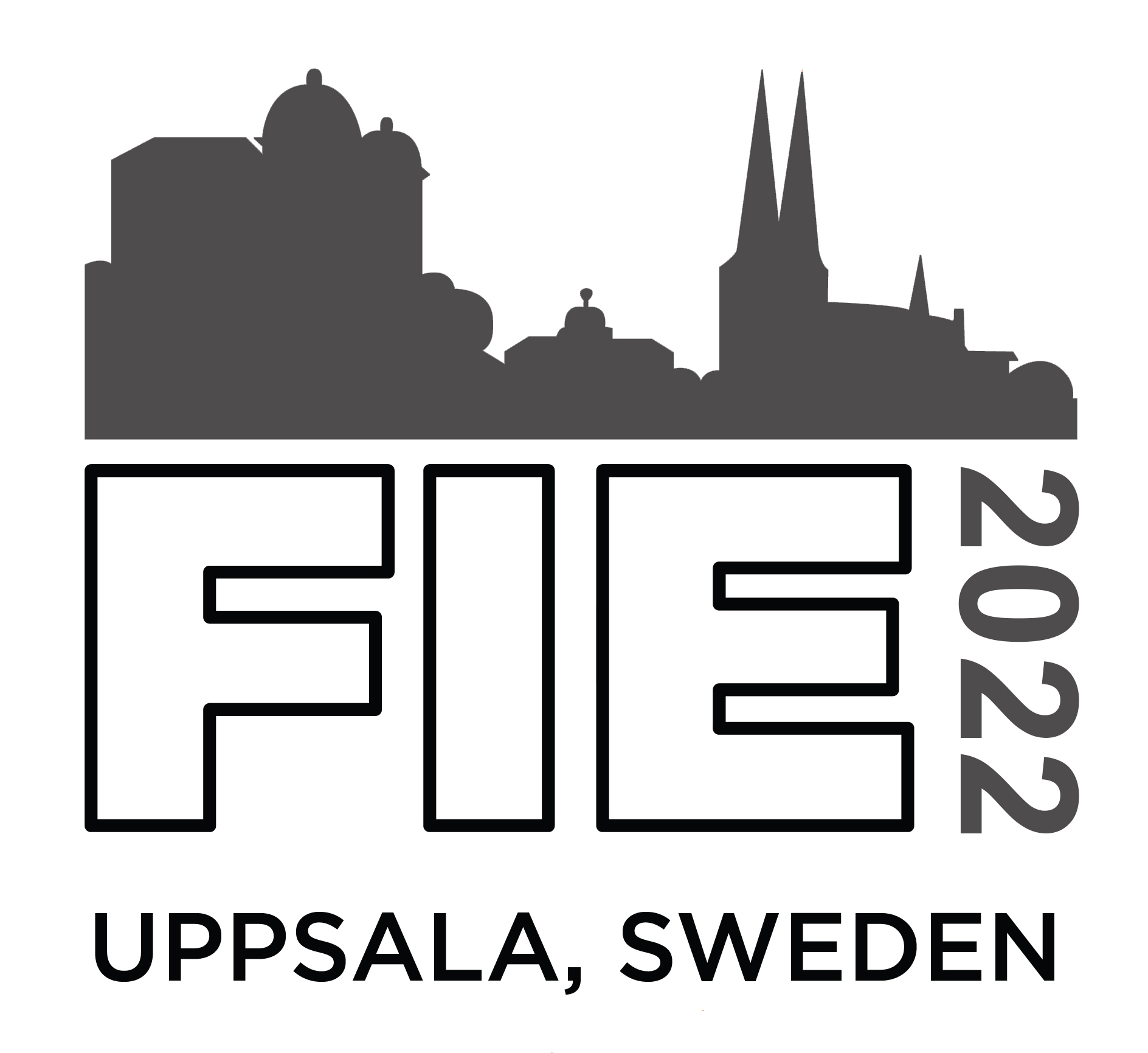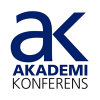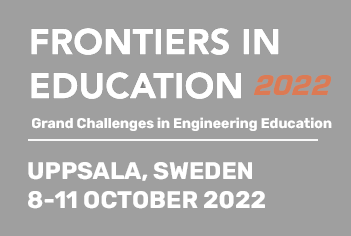
Keynote and awards

KEYNOTE SPEAKER
ANNE-KATHRIN PETERS
Technology Education in Troubled and Exciting Times. Three (Un-)Knowns.
Abstract
Research shows there is a pressing need for change in all aspects of our society towards more just and peaceful ways of living. Human activities in highly industrialized countries are violating against planetary boundaries, where climate change and biodiversity are two of them. We are increasingly destabilising our earth system. Poorer communities contribute least to the problems but are impacted the most. Children will need to live with the consequences of today’s actions and inaction more than those in power positions today. Knowledge about sustainability challenges has existed for decades but change has been slow, which puts us under increasing pressure to act. The global challenges are complex and transformation needs to happen on various scales. We need unprecedented change now, and so we are not only living in troubled times, but also in exciting times.
Education is widely recognised as being of great importance for achieving change but it can also contribute to maintaining unsustainable ways of living. Technology is ambiguously positioned with respect to the challenges we are facing today.
How can we work in technology education to promote societal transformation? With this keynote, I want to share and raise awareness for three insights that I and others argue are important, that can guide educational development and research for sustainability. These insights in parts have been around for a long time. They may be well-known. I still see them being argued for in different research communities. Are those insights knowns or unknowns and why are we not acting on them for change if they are knowns. Or are we? Using examples from my own work, I will explain the relevance of the three insights, or “(un-)knowns”, and how they can inspire education practice. I hope to provide food for thought and inspire constructive discussions on how we can work for change in and through technology education together, in today’s troubled and exciting times.
Bio
Dr. Anne-Kathrin Peters is an Associate Professor in technology education at KTH Royal Institute of Technology in Sweden. She works with the role of education and technology for change towards sustainability. Most of her research has been on norms, values, identities, how they are produced through power relations in education and may change. Together with colleagues, Anne is establishing a new research group on sustainability and education at KTH. As a part of her teaching, she is developing educational activities to support educational transformation at KTH. Anne has moved between several research communities in the past years including computing education, STEM education, ICT for sustainability, feminist technology studies, and futures studies. Until a year ago, she was a researcher and teacher at the department of Information Technology at Uppsala University (UU). At UU, she coordinated the Climate Change Leadership initiative at the department of Earth Sciences, which is a sustainability initiative to establish cross-disciplinary and -institutional research collaborations on societal transformation and climate action. Anne has a computing and teaching degree from Germany and has worked as an informatics and mathematics teacher in high school.
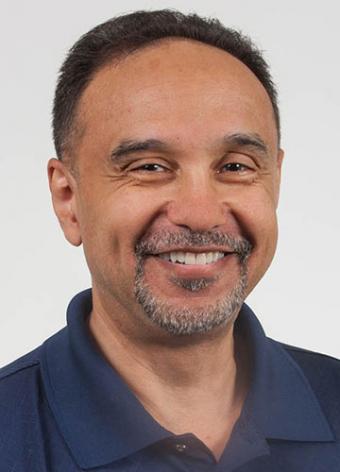
2022 IEEE UNDERGRADUATE TEACHING AWARD
Sponsored by the IEEE Education Society
CHRISTOPHER ROSE
For innovations in team-oriented signature design and inspiring women and underrepresented minority students to pursue engineering
With pioneering team-based capstone design courses, Christopher Rose has encouraged his communications theory students to think creatively and dream big in realizing important technologies benefitting society. Rose was an early champion of the capstone concept while at Rutgers University. He challenged his students by asking how they would like to see wireless technology change the world and gave them to tools and support to do so. Successful before-their-time results from his students’ capstone projects included wireless parking meters and parking decks, an app that monitors vital statistics of firefighters, and an energy-saving mesh network for reactive lighting. The team-based, big-picture interdisciplinary research opportunities of these courses attract women and underrepresented minorities to the field, and Rose has also devoted significant time and effort to mentoring young, underrepresented faculty and students at universities across the country.
An IEEE Fellow, Rose is a professor of engineering and associate provost for STEM Initiatives at Brown University, Providence, RI, USA.
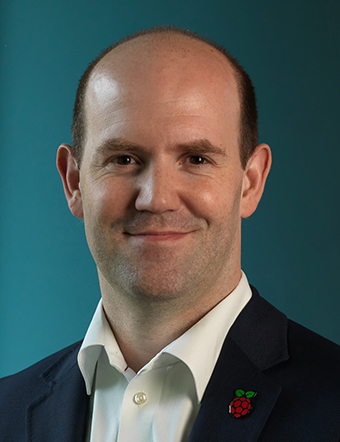
2020 IEEE MASARU IBUKA CONSUMER ELECTRONICS AWARD
Sponsored by Sony Corporation
EBEN UPTON
For creating an inexpensive single-board computer and surrounding ecosystem for education and consumer applications
Confronted with declining interest in computer science programs, Eben Upton was inspired to create an inexpensive, fully functional, programmable computer to encourage students to engage with computers and learn to code. Upton’s Raspberry Pi single-board computer combines embedded, low-power video and graphics cores with an ARM CPU to create a simple, standardized low-cost computer platform. With the addition of a keyboard, mouse, and monitor, the Raspberry Pi provides a complete 64-bit desktop computer with access to millions of Linux applications. Upton has allowed students, enthusiasts, and technologists to focus their creativity on their projects—whether it be a media player, laptop, lawn-sprinkler control, or robotic kits—to name just a few. Upton launched the Raspberry Pi Foundation in 2009 to promote the study of computer science and to put the fun back into learning computing.
Upton is currently chief executive officer with Raspberry Pi (Trading) Ltd, Cambridge, UK.
Contact
Academic Conferences
Phone + 46 (0) 18 67 10 03
E-mail: fie2022@akademikonferens.se
(for practical questions about your registration)
AppInConf
E-mail: abstracts.fie2022@appinconf.com
(for questions about abstract submission)
Important dates
February 14, 2022
Abstract Submission Deadline
March 7, 2022
All Acceptance Communications
April 25, 2022 (Extended deadline)
Preliminary Paper, Special Session and Panel Summary Papers, and Workshop Outlines, Submission Deadline
June 10, 2022
Notification of Paper Revision Requirements and Final SSPCW Acceptance Communication
July 5, 2022 (Extended deadline)
Revised Paper Submission (major revisions)
July 18, 2022 (Extended deadline)
Peer Review Final Acceptance Communication
August 1, 2022 (Extended deadline)
Final Camera-Ready Paper Submission & Copyright Deadline
October 8-11, 2022
CONFERENCE
